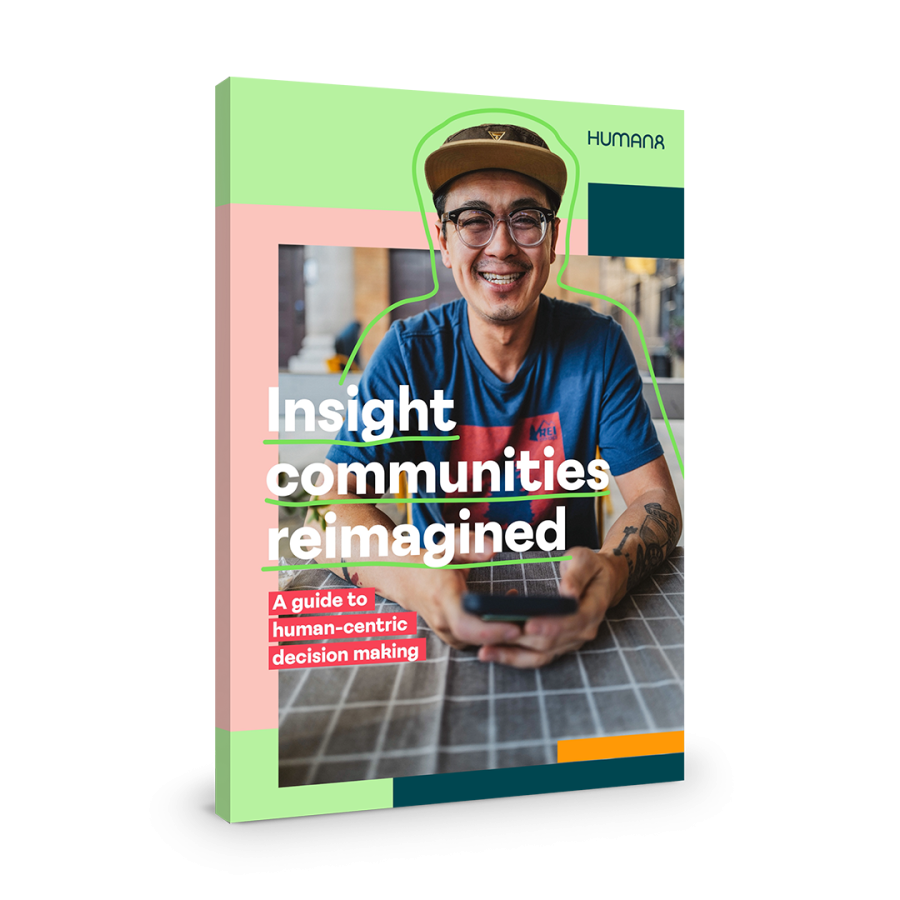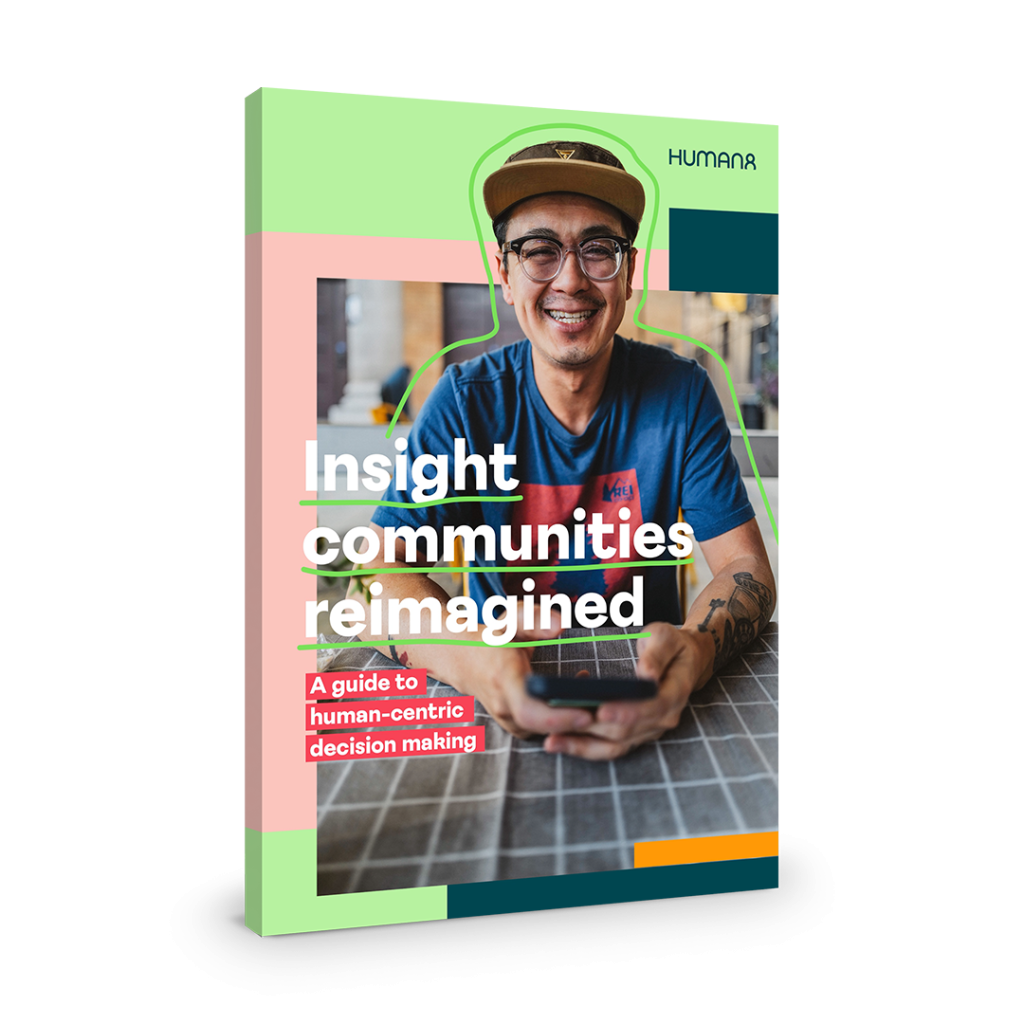Blog
Reasons to believe in online qualitative research
In recent decades online qualitative research, and especially online communities, have grown into popular mainstream research methods. Discover why here.


Marlé Mans
12 October 2023
4 min read
As a frontrunner in community research, we have more than 20 years’ experience in conducting online qualitative research projects. While two decades ago online communities were in their infancy – primarily consisting of text-based online discussion groups – they have since evolved into mainstream research platforms that support picture sharing, video content, and even quantitative tools.
For a long time, this methodology was growing slowly and steadily; but the pandemic acted as an accelerator. As consumer behaviour increasingly shifted online, the market research industry could not stay behind. It’s a matter of engaging with consumers where they are, in the digital space. While in-person research has regained some ground lost due to the pandemic, online qual has not given back what it gained and globally remains a popular method for qualitative data collection.
In some markets like South Africa, the adoption of online qualitative research has been slower. But like elsewhere in the world South African consumer behaviour has also shifted online, with an internet penetration rate which stood at 72.3 percent at the start of 2023. Living in South Africa myself, I strongly believe in online qual and in this blog I share why.
Reason #1: More open and honest
From behind their computers, in their secure environment, people are more daring. They share truths they would never reveal otherwise; they don’t feel watched or observed through a one-way mirror nor by other respondents or moderators. This approach enhances validity and reduces the risk for socially desirable answers. Consequently, taboo subjects such as financial or health-related matters are addressed more easily online than in face-to-face interactions.
While most online conversations are organised in group (with other participants), fostering interaction and enriching the conversation, sensitive topics are discussed in private settings (one-on-one with the moderator). For example, when exploring the costs of raising children with young parents, we opt for private conversations to ensure people feel comfortable sharing potential challenges. When discussing fun family activities, we use group discussions, as parents love to share their experiences with peers to get inspired.
Reason #2: Context potential
In online market research it’s not about inviting participants to enter the world of the researchers. Instead, researchers and internal stakeholders enter the homes and lives of people. Mobile accessibility further enhances this contextual potential, enabling feedback on real-life moments rather than staged experiences. It also reduces reliance on participant recall, as mobile tools allow to gather rich multimedia in situ, such as photos taken in-store and videos filmed at home. A great example of this is how my Human8 colleagues collaborated with SkyTeam on an app for its high-value customers, enabling them to provide direct feedback on their experiences with SkyTeam’s premium offering. All SkyPriority’s managers have access to a customised online dashboard, where they can check real-time response data such as survey figures, stories and photos.
Reason #3: Better representation of society
Where offline research often faces significant regional constraints – requiring participants, researchers and clients to gather at a central location, often leading to a geographical bias – online research can easily bring together people from diverse locations. Besides avoiding location bias, people are also more inclined to join a research project from the comfort of their own homes. Compared to traditional offline research, it’s thus easier to reach a diverse mix of individuals that is representative of the society they live in.
Reason #4: Synchronous or asynchronous
We can conduct online qual, such as discussion activities, both synchronously (via video or live chat) or asynchronously (through forum discussion). An example of the latter is what my Human8 colleagues in the UK did in a project for the BBC. They engaged with 300 people aged 10 to 35 in an online consumer community to gain a deeper understanding of how the BBC could reconnect with their younger audiences through participatory experiences. During these discussions, the youngsters were asked to share insights about their online behaviour and what motivates them to interact with online content. By conducting the discussions asynchronously, participants had more time to carefully consider their responses and search for weblinks they wanted to share to illustrate their memorable online interactions.
Reason #5: Consecutive learning
During a research project it is normal that answers are the start of new questions. Due to the limited timeframe, traditional qualitative research often lacks the option to ask these questions which arise during or after the project was performed. Online insight communities allow brands to collaborate with consumers over longer periods of time (for several weeks, months or even structurally), in contrast to focus groups which typically last two hours. This gives both the participants, the researchers as well as the client the potential for consecutive learning throughout the project.
In summary, online qualitative research has undergone a remarkable evolution and offers numerous advantages, from fostering open dialogue in a secure digital environment to providing rich contextual insights. Its ability to overcome geographical constraints and engage participants asynchronously makes it a powerful tool for understanding diverse perspectives. Consecutive learning opportunities further underscore its significance in today’s research landscape.
EBOOK
Insight communities reimagined
A practical guide to human-centric decision making.
Request your free copyReady to do what matters?
Let’s connect

